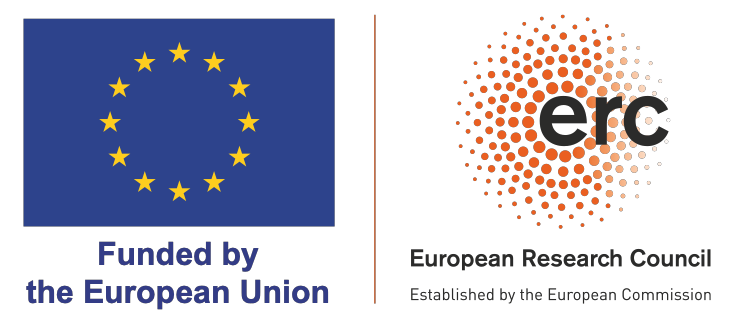FLORA: Sustainable and healthy food solutions
Sustainable and healthy food solutions: system dynamics and trade-offs
Flora is hiring a Chargé·e de projets environnement (F/H)
Flora is regularly hiring researchers to join the Sustainable Food systems research team at ENS-PSL in 2024 – keep an eye on this site and social media for announcements.
Food systems are crucial to end hunger, but also to mitigate and adapt to climate change, to protect and restore biodiversity, to ensure human health and well-being, to end poverty, and to support sustainable communities. While hunger has receded, food systems are causing increasingly severe damage to our environment and health.
The FLORA project (“Sustainable and healthy food solutions: system dynamics and trade-offs”) will contribute to a transformation of global agri-food production, trade, and consumption necessary to achieve sustainable and healthy food systems.
The project will create essential evidence to identify and implement the shifts in practices and behaviours needed to effectively achieve this transformation, by:
- making a diagnosis of the integrated health and environmental outcomes of food systems globally, from the production and consumption perspectives, with innovative measures of sustainability,
- identifying key threats and opportunities with system dynamics and complex network analyses, and
- targeting and evaluating tailored solutions with an interdisciplinary modelling framework.
The project will enable the identification of most effective, targeted solutions by considering trade-offs, synergies, and dynamics of key food systems components. Global in scope, it sets the ambitious goal to overcome barriers in current approaches by taking a systemic approach and establishing a robust, interdisciplinary framework supported by empirical advancements to tackle complex food systems challenges.
FLORA is funded by a Starting Grant from the European Research Council and led by Carole Dalin, senior researcher in the Department of Geosciences at ENS-PSL.
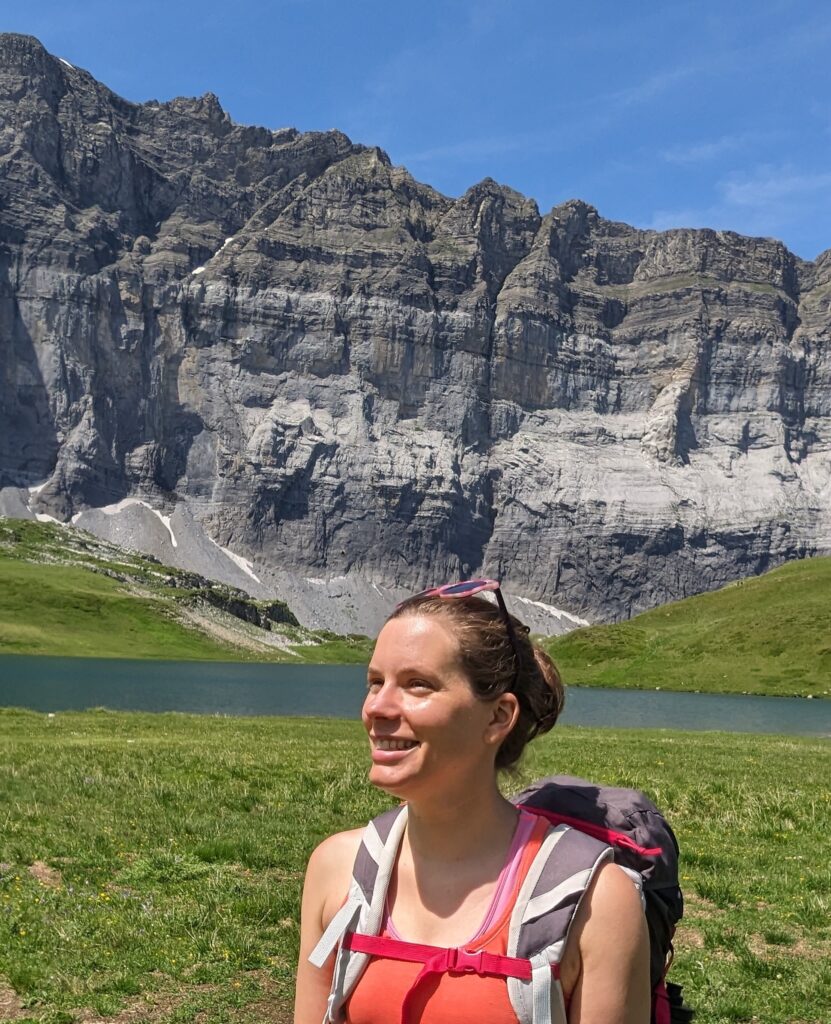
Carole Dalin, PI
Carole is a CNRS Researcher at the Laboratoire de Géologie of Ecole normale supérieure. She is interested in quantifying the environmental sustainability of food systems at the global scale. She focuses on the impacts of crop and livestock production on water resources, biodiversity and climate change. Carole is also Associate Professor in Sustainable Food Systems at the University College London (UK), where she has held a faculty position since 2016. Previously, she worked on climate and the water-energy-food nexus in southern Africa at the Grantham Research Institute on Climate and Environment at the London School of Economics (UK). She obtained her Ph.D. in Environmental Engineering and Water Resources at Princeton University in 2014, on international virtual water trade.
Belén Benitez, PhD student
Belén holds a bachelor’s degree in agricultural sciences and an MSc in environmental hazards and risk management from the Université Côte d’Azur (Nice, France). Belén’s past experiences have fueled her interest in understanding how land use change impacts food production and how food systems work at the expense of environmental degradation. This has led her to embark on this journey toward a Ph.D.
Her research is an integral part of the FLORA project, and her thesis work focuses on Global-Scale Data Analysis and Modeling of the Environmental and Health Outcomes of Agri-Food Production and Trade. She aims to analyze different environmental sustainability indicators of food, their trends over time, and evaluate how these indicators are related. Moreover, she aims to project these indicators in the context of future climate change scenarios, understanding how they could be affected considering climate change projections.


Marcellin Guilbert, post-doctoral researcher
Marcellin Guilbert holds a PhD in climate science from Sorbonne Université, where his research centered on analyzing the responses of the Indian and Sahelian monsoons to anthropogenic forcing, focusing on the uncertainties in the projections for the latest generation of climate models. Fueled by a previous experience in environmental impact assessment through a mission for the United Nations, he now uses his experience working with large datasets and advanced analysis techniques to develop indicators of the impact of the global food systems. More specifically, his main mission within the project is to add a biodiversity impact indicator, extend the evaluation of all indicators over time and confront them with environmental limits in order to assess the sustainability of the global food system.
Jasmine Gamblin, post-doctoral researcher
Jasmine Gamblin received her training at École polytechnique and ETH Zürich, specialising in mathematical modelling and data science with a focus on biological applications. She completed her PhD at the Center for Interdisciplinary Research in Biology (CIRB) at Collège de France, where her research centred on analysing genomic data to develop a stochastic model of gene exchange within bacterial species.
Driven by a deepening interest in the sustainability and nutritional security of food systems, Jasmine is currently leveraging her data analysis expertise to study the indicators developed for the FLORA project. She investigates existing and potential synergies and trade-offs between these indicators and those related to nutritional security. Additionally, she is examining the resilience and vulnerabilities of the global food trade network.
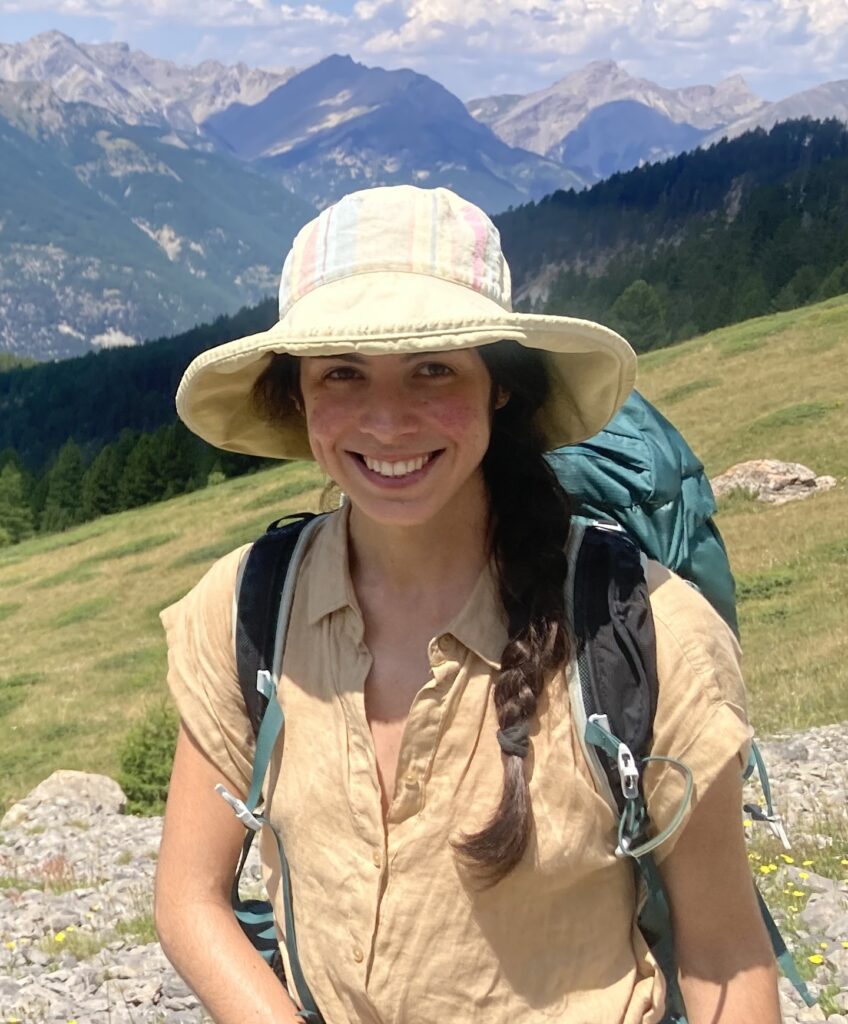
Former team members
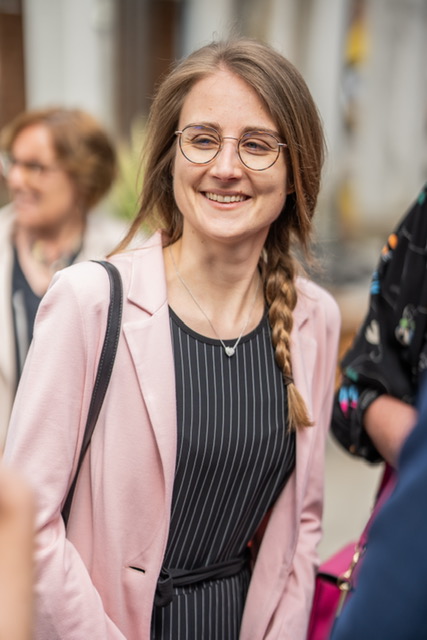
Charlotte Janssens, visiting researcher
Charlotte Janssens is a researcher in Agricultural Economics at the Department of Earth and Environmental Sciences at University of Leuven (KU Leuven), Belgium. She has obtained her PhD in Bioscience Engineering from KU Leuven in 2022. During her PhD, she collaborated with the International Institute for Applied Systems Analysis (IIASA) on the Global Biosphere Management Model (GLOBIOM) model and visited the Department of Economics at Massachusetts Institute of Technology (MIT) to study international trade and climate extremes.
Charlotte currently holds a postdoctoral fellowship from Research Foundation – Flanders (FWO) for the project “Modelling of agricultural markets and market impacts across spatial and temporal scales: Application to climate change scenario studies” (2023 – 2026). Within the fellowship, she is spending the academic year 2023-2024 in France as a visiting researcher at ENS in the Department of Geosciences and at INRAE in the Paris-Saclay Applied Economics (PSAE) Joint Research Unit. Her postdoctoral research agenda focusses on the development of economic and interdisciplinary quantitative models to study the linkages between agricultural trade, climate change, and food security on regional and global scales.
Isabella Ghirardo, MSc student (visiting)
Isabella graduated with a Bachelor degree in Environmental and Land engineering from Politecnico di Torino (Italy). She is pursuing a Master degree in the same field but with a focus on Climate Change, developing a master thesis that aims to show the changes in agricultural crops as a result of climate change.
Her analysis gets deep into the topic of salinity and how it is increasing consistently due to changes in ocean levels and subsequently penalizing some coastal areas and nearby crops by infiltrating soil water and water used for irrigation.
In this regard, she is currently doing a period of visiting in Paris, at the Ecole Normale Superieure in the department of Geosciences to investigate the topic from the point of view of sustainable water use and therefore possible estimates of water demand and water debt as a result of salinity in agriculture.
In this regard, she has been visiting the department of Geosciences at the Ecole Normale Superieure in Paris from September 2023 to January 2024 to investigate the topic from the point of view of sustainable water use and therefore possible estimates of water demand and water debt as a result of salinity in agriculture.
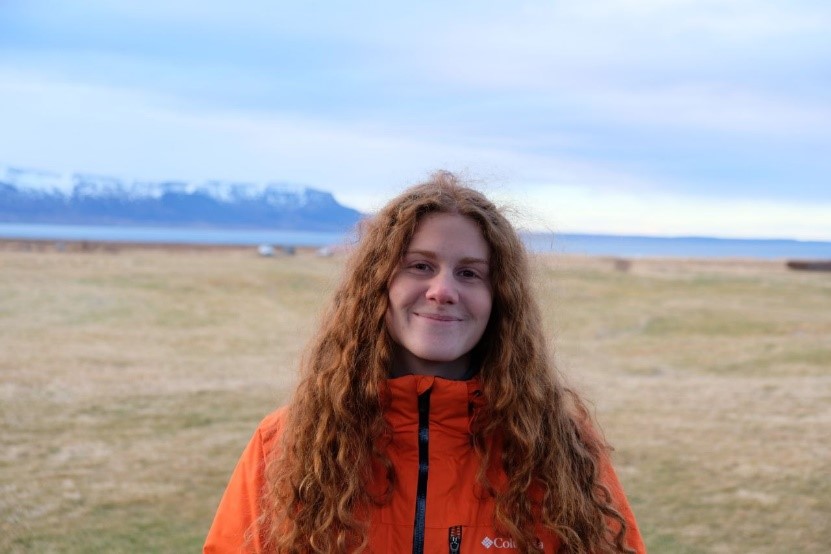

June 2025 – Flora is hiring a Chargé·e de projets environnement (F/H)

April 2025 – Flora is presenting its work at the EGU General Assembly:
- Carole Dalin is co-convening the session HS3.5 “Innovative Approaches in Hydroinformatics and Stakeholder Engagement for Managing Hydrological Extremes in Diverse Basins”, taking place on Friday May 2 from 10:45-18:00 (orals in room 2.17, and posters 14-15:45)
- Carole Dalin will give an invited talk about “Water and food: sustainability of global agricultural systems and their impacts on water resources and aquatic biodiversity” in the session HS5.3.1 “Water resources policy and management – balancing the water, food, energy and environment nexus for resilient water systems under global change” taking place on Wednesday April 30 afternoon & Thursday May 1st morning)
- Marcellin Guilbert will present his work “How far are food systems from sustainability?” in the session BG8.6 “Agroecosystem assessment and indicators from farm to continent to improve sustainability”
- Belén Benitez will present a poster “Attributing gridded land use change carbon emissions to crop and grass production from 2000 to 2020” in the session BG3.2 “Land use, land management, and land cover change (LULCC) and their effects on the Earth system”

January 2025 – Flora has hired Jasmine Gamblin, postdoctoral researcher in data analysis of global food systems and their impacts to join the Sustainable Food systems research team at ENS-PSL.
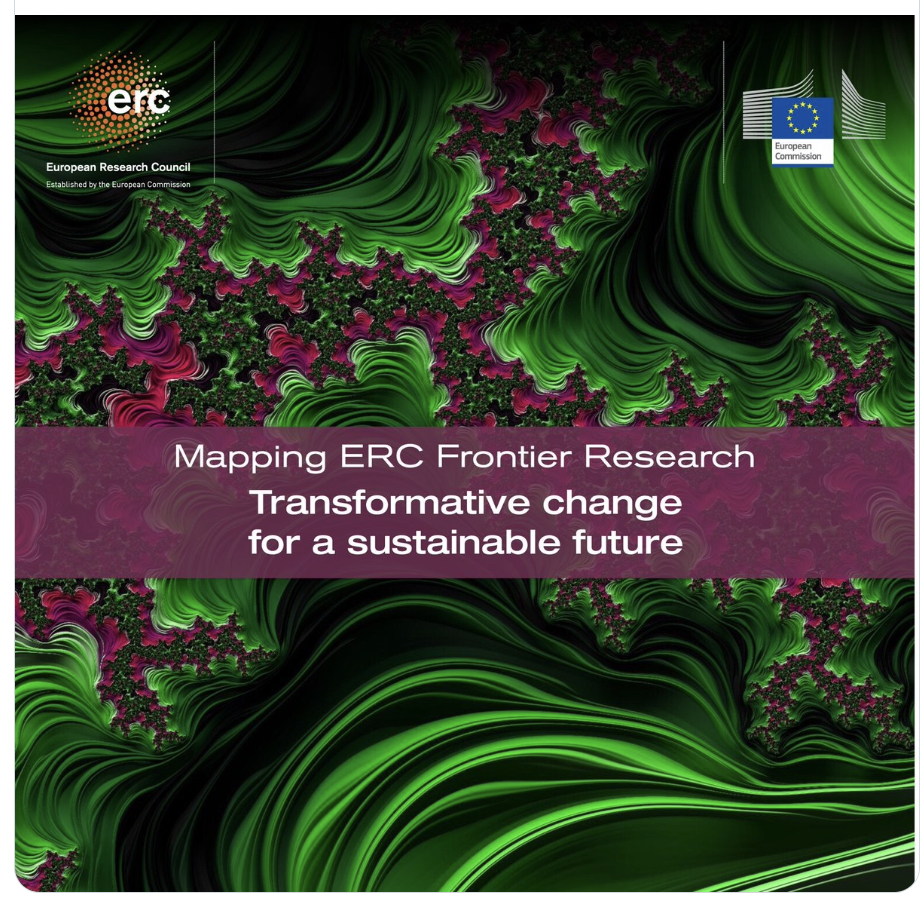
December 2024 – The FLORA project is featured in this report of ERC-funded research on transformative change.
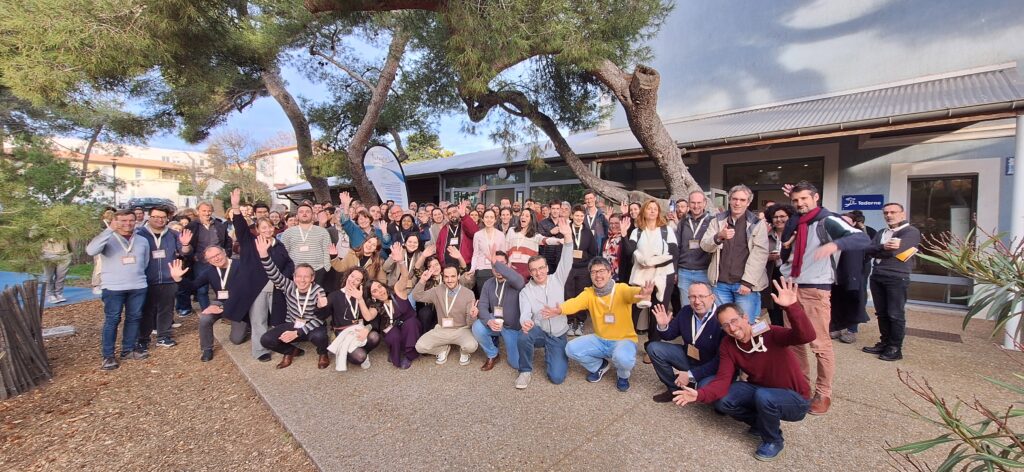
November 2024 – Bélen Benitez presented her work through a poster “Attributing Gridded Land Use Change Carbon Emissions to Crop and Grass Production from 2000 to 2020” at the “Journées Annuelles 2024 FairCarboN” that took place in Sète, Occitanie, from November 25th to 27th, 2024.
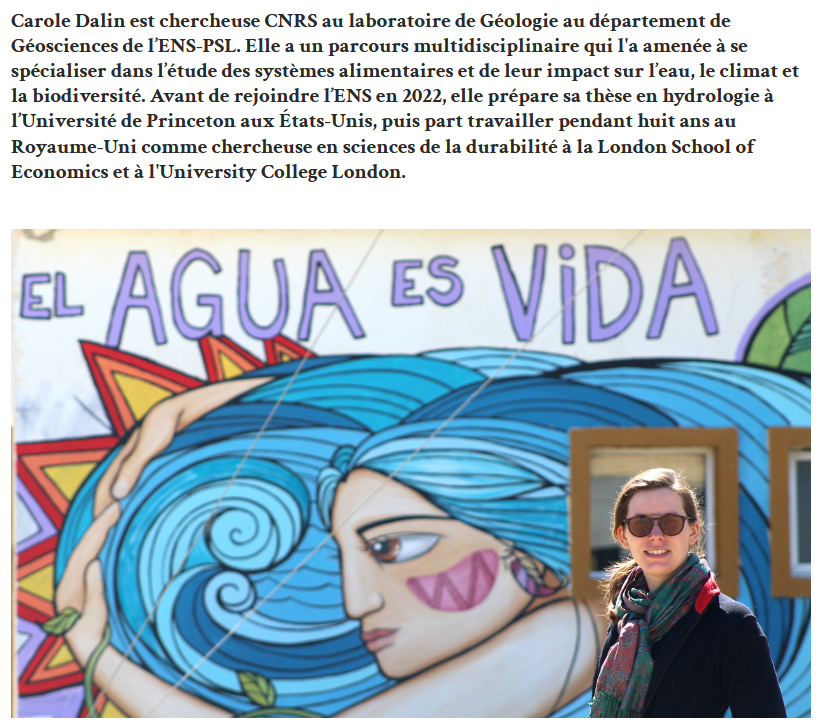
November 2024 – Interview (in French) with Carole Dalin, FLORA project PI : «La crise environnementale est grave, mais elle n’est pas une fatalité»

February 2024 – Flora has hired Marcellin Guilbert as a postdoc to join the Sustainable Food systems research team at ENS-PSL for 2-3y to develop high-resolution, environmental and socio-economic data to measure progress towards sustainability and health goals.

December 2023 – Flora has hired Belén Benitez as a PhD student to join the Sustainable Food systems research team at ENS-PSL. She will focus on Global-Scale Data Analysis and Modeling of the Environmental and Health Outcomes of Agri-Food Production and Trade.
PEER-REVIEWED ARTICLES
The multi-dimensional environmental impact of global crop commodities
Jwaideh M and C Dalin
Nature Sustainability 2025 DOI
The 2024 report of the Lancet Countdown on health and climate change: facing record-breaking threats from delayed action
Romanello M., […], C Dalin et al.
The Lancet 2024 DOI
Impacts of global food supply on biodiversity via land use and climate change
Boakes EH, C Dalin, A Etard, T Newbold
Nature Communications 2024, doi:10.1038/s41467-024-49999-z
International food trade contributes to dietary risks and mortality at global, regional and national levels
Springmann M, H Kennard, C Dalin, F Freund
Nature Food 2023, doi:10.1038/s43016-023-00852-4
PREPRINTS
Agri-food corporations’ role in water sustainability and water resilience of global supply chains
Dalin C., Kyle Frankel Davis, Elena DePetrillo, Paolo D’Odorico, Felice Diekel, Rick J Hogeboom, Megan Konar, M Cristina Rulli, Marta Tuninetti, Landon Marston
EarthArXiv link
Global trade and the resilience of food supply to extreme weather exposure
Bebber DP, C Dalin, EW Littleton, P Falloon, AJ Challinor, S McCorriston, T Lloyd, M Zampieri
EarthArXiv link



